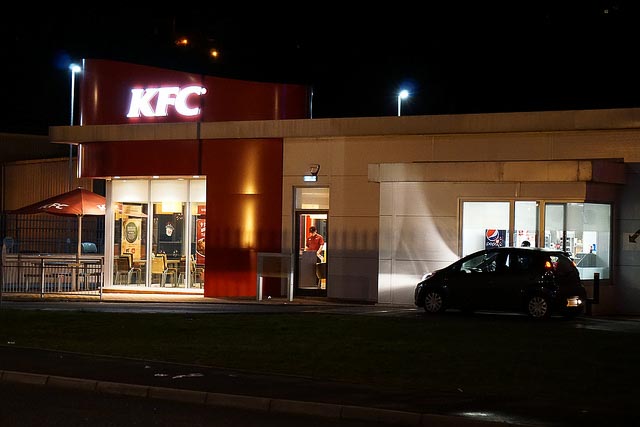While the Urban Edge strives to provide readers with daily news and insights about urban policy, we’re also voracious readers of city news ourselves. As part of a new weekly feature, Senior Editor Ryan Holeywell highlights the week’s most interesting articles from around the web about urban policy and city life.
What Would Happen If America Made Voting Mandatory?
Dozens of other countries force their citizens to vote. Of course, compulsory voting isn't like to happen in the U.S. any time soon, but if it did, supporters argue, politicians would likely have to address broader concerns rather than appeal to narrow bases, Governing writes. "Ideally, a democracy will take into account the interests and views of all citizens so that its decisions represent the will of the entire people," Governing writes, citing a recent Brookings Institution paper promoting mandatory voting.
Minneapolis Considers Driving Out Drive-Through Businesses
Minneapolis is considering restrictions on where drive-throughs can be installed in many parts of the city, the Minneapolis Star-Tribune reports. Some councilmembers argue that areas with lots of pedestrians and transit might not need them at all. The city already bars drive-throughs throughout most of downtown and some dense areas.
Why Historic Preservation Districts Are Crucial to Cities
Historic preservation districts benefit people, even if they don't actually home within them, argues a City Lab piece, rebuffing a different City Lab piece that suggests preservation districts are to blame for a lack of affordable housing. Density is possible even in areas without high-rises, the piece notes, and historic buildings across the country are being creatively adapted into affordable housing.
St. Louis Will Let Crosswalk Art That Violates Federal Rules Fade Away
St. Louis, like many other cities in recent years, has installed colorful, artistic crosswalks designed to create public art while simultaneously bringing greater attention to pedestrian safety. But now the city has banned crosswalk art after leaders became aware of a 2011 warning from the federal government that says the technique might actually undermine pedestrian safety, the St. Louis Post-Dispatch reports.
Waze: The App That Changed Driving
For years, cabbies have prided themselves on the tricks and shortcuts they learned over the years, but their advantage over the layman is eroding, thanks to Waze, the popular traffic navigation app, Men's Journal writes. With 50 million users -- who provide live feedback that helps Waze determine the fastest routes -- "arguably nothing has had a bigger impact on what's actually happening on the roads than this simple app." Now, cities -- once skeptical of the app -- are partnering with it in order to learn more about the ways their transportation networks operate.

